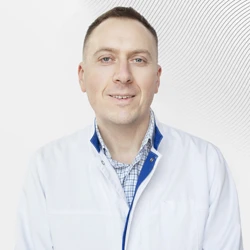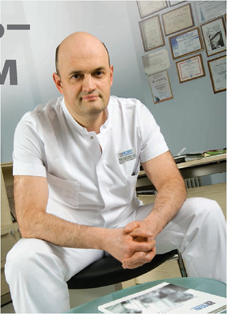
The most precious thing we have is life and health, so we are ready to entrust them only to the best specialists, in whose knowledge and experience we are confident. Today we have the opportunity to get to know one of these people better. This is Professor Andrey Korolev, Chief Physician ECSTO clinics, orthopedic surgeon, traumatologist, Doctor of Medical Sciences. His story is proof of how professionalism, loyalty to a dream, confidence in success and the ability not to stop in the face of difficulties help to achieve their goals and make a fairy tale come true.
Andrey, how did your "medical biography" begin? Have you wanted to be a doctor since childhood, or did this idea come much later?
In childhood and early adolescence, I did not even think that medicine would become a part of my life: I was sure that my work would be related to space. And it was not just an ordinary boy's dream, but, as it seemed to me at the time, a completely conscious choice: my grandfather, Sergei Pavlovich Korolev, was a famous scientist, a designer of rocket and space technology, and I was lucky enough to communicate with his colleagues, cosmonauts of the first detachment... And then I decided that I would also be involved in designing rockets and even started going to the physics and mathematics school at the MAI. But then an incident happened that turned my whole life upside down: I had acute appendicitis, and the operation was performed at the clinic where my mother worked, at the Scientific Surgery Center. During my two weeks there, I realized that space was not for me, I had to be a surgeon. I left the Physics and mathematics school immediately and began to prepare for admission to the I.M. Sechenov 1st Moscow Medical Institute. When I became a student, I had the feeling that wings had grown behind me — every day I was convinced that I had made the right choice, and I was very happy.
How did you come to choose your specialization?
I decided to follow the example of my mother and her teacher, M.I. Perelman, one of the leading surgeons in our country, and engage in pulmonary surgery. I am very proud that I was also lucky enough to study with him during my residency and postgraduate studies at the Department of Phthisiopulmonology and assist him in operations.: It was a very important experience for me. In addition, he was very interested in research at the junction of various medical specialties, including the combination of thoracic*, pulmonary and cardiovascular surgery, that is, organ transplantation. I was lucky enough to participate in a research program with him, and my first dissertation, which I defended in 1990, was on tracheal transplantation. Unfortunately, thoracic surgery began to fade away in the 90s: it required high-quality, expensive equipment and simply could not exist without financial support from the state. But our specialists had a lot of experience, and M.I. Perelman tried to share our knowledge with foreign specialists. During one of the conferences, I met leading European surgeons: Professor M. Allgover, President of the International Society of Surgeons, Professors L. Schweiber from Munich and T. Ruidi from Switzerland. And I was invited to Germany to give lectures for surgeons.
What impression did the clinics in Germany make on you?
The indelible. I was shocked by their organization, order, structured work and responsibility for patients. When I was asked if I wanted to do an internship in Germany and Switzerland, I thought it was impossible, but Professor Schweiber helped me: in January 1992, I received an invitation and began working in Munich under his supervision at one of the leading surgical clinics in Europe and at the same time studying German (before that, I knew English and French). Two months later, I was already communicating freely with my colleagues in their native language and even received a work permit in Germany. My education and academic degree were confirmed to me, I studied and worked — in short, it was an amazing time, which I now remember with great warmth.
How did it happen that you decided to leave thoracic surgery?
At the very beginning of my work at Professor Schweiber's clinic, he suggested that I specialize in traumatology and orthopedics. However, then I thought I needed to do general surgery.: This gave him the opportunity to do his favorite job in Moscow and find many patients. In addition, orthopedics and traumatology were at a low level in our country, unlike, for example, thoracic surgery. But in Germany, I saw the possibilities and potential of arthroscopic surgery, and this influenced my decision: I agreed with Professor Schweiber.
Was this the first step towards starting your own clinic?
Yes, I planned to open a private clinic in Russia in order to adapt the European experience of orthopedics and traumatology to Russian realities, but fate decreed a little differently. Upon my return from Germany, I received a job offer from the Russian Medical Academy of Postgraduate Education. I taught, operated, and conducted patient appointments. But after a few years, I realized that I had to move on. Soon I received an offer from Professor Zagorodny, who invited me to work at a new clinic run by Professor Georgy Golukhov. At that time, Hospital No. 31 was the best in Moscow: modern equipment, professional staff, and comfortable facilities. In this hospital, I became the supervisor of the Department of Traumatology and orthopedics. I already had serious work on my doctoral thesis, and six months later I defended myself and received my doctorate and the title of professor. This hospital has opened up fantastic opportunities for me to develop arthroscopic and orthopedic surgery. The number of patients was growing, and I already had the services of a secretary who helped me structure the appointment system, adjust the time and plan operations — I also saw this kind of work in Germany and Switzerland. Nevertheless, I continued to dream of creating a private clinic, which would allow me to work at full strength. And then I started cooperating with the European Medical Center (EMC).
Why the European Medical Center?
Here I found the logic in the organization of work that I lacked in ordinary hospitals, which are forced to live according to the laws of urban healthcare, adopted back in Soviet times. And at the EMC, any number of patients were welcome at any time — not only on weekdays, but also on weekends. No one ever said: "Doctor, you operate after hours!" — I was always given the green light. But still, I did not abandon the idea of creating a private clinic. I invited a financial consultant, with whom we worked on a business model, and continued to work: operated, advised - I wanted to help people... And then the EMC changed owners — two of my friends, the owners of the 36.6 group of companies, Artem Bektemirov and Sergey Krivosheev, bought the business. They offered to "implant" my own future clinic into the EMC structure, and I gladly agreed. So my "European Clinic of Sports Traumatology and Orthopedics" (ECSTO) became part of the EMC Group of Companies. The current owners of the EMC — Igor Shilov, Leonid Shaiman, Chaba Balier — are people who really wanted and were able to build the best private clinic in Russia, and money is not the main thing for them, which fully corresponds to my view of life. I want to say that I would never have been able to create such a clinic in my life if there hadn't been people around who believed in this idea and worked faithfully with me shoulder to shoulder. Some came here as young people, others as mature specialists, but what unites us all is that we really love and know our work, respect our patients and sincerely want to help them.
*Thoracic (thoracic) surgery is a field of surgery that focuses on organs located in the chest area, as well as adjacent organs. These are the larynx, pharynx, esophagus, trachea, lungs, thymus gland (thymus), thyroid and parathyroid glands, diaphragm, liver, stomach, heart, pericardium, large blood and lymph vessels.





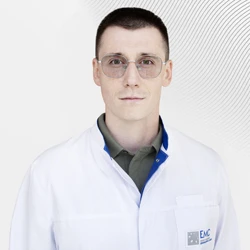
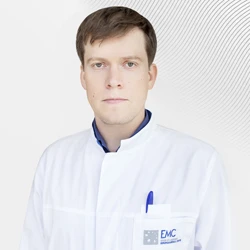
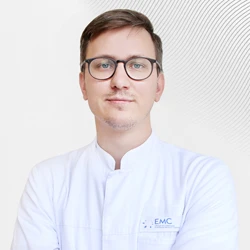
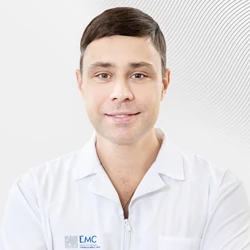
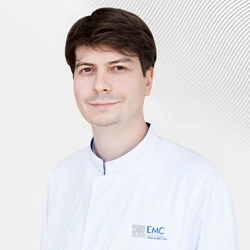
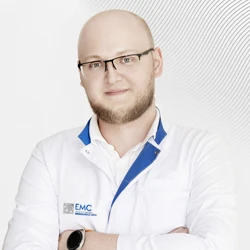
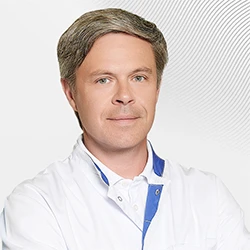
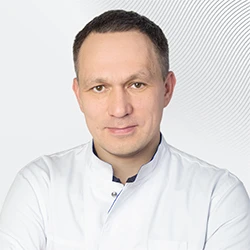
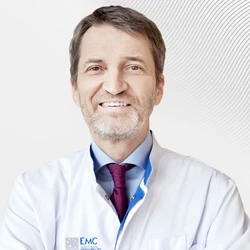
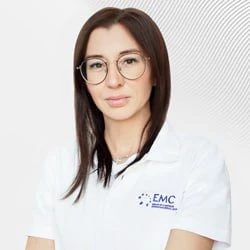
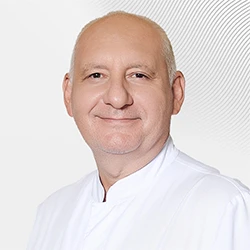
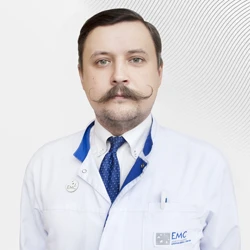
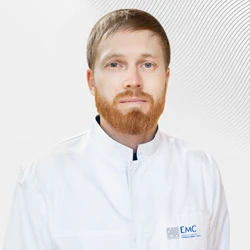
.webp)
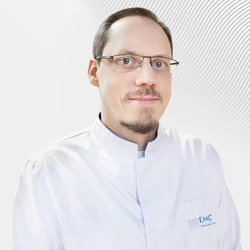
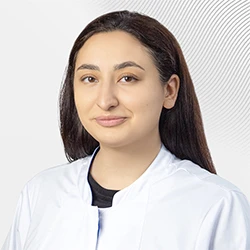
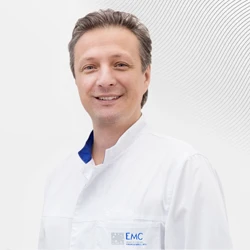
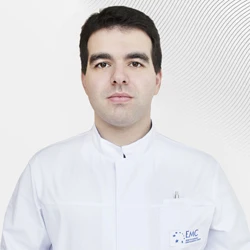
.webp)
